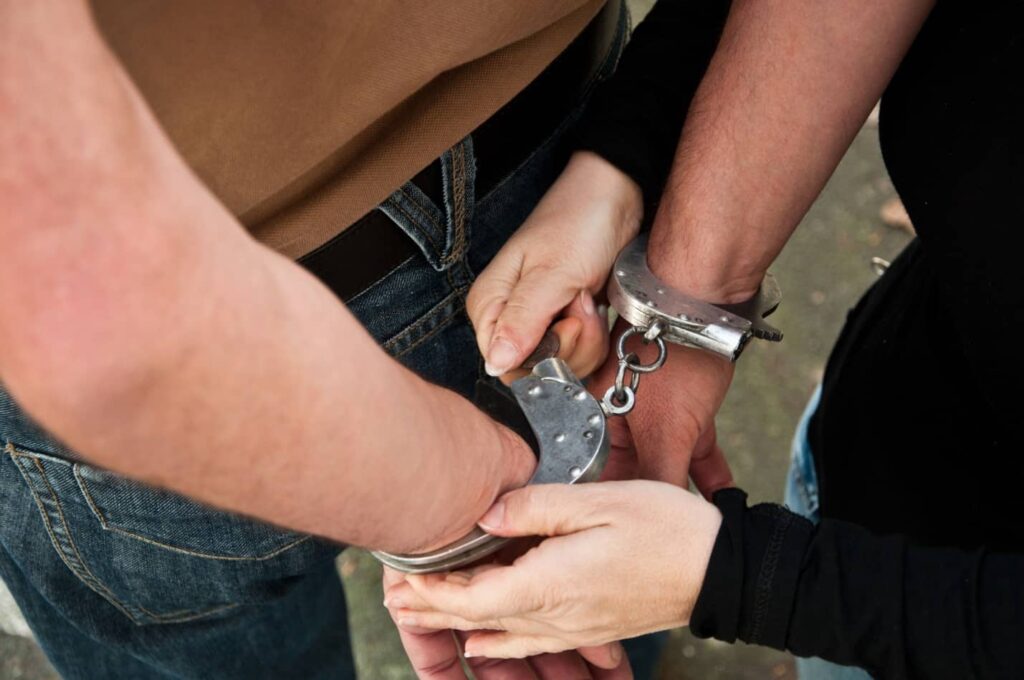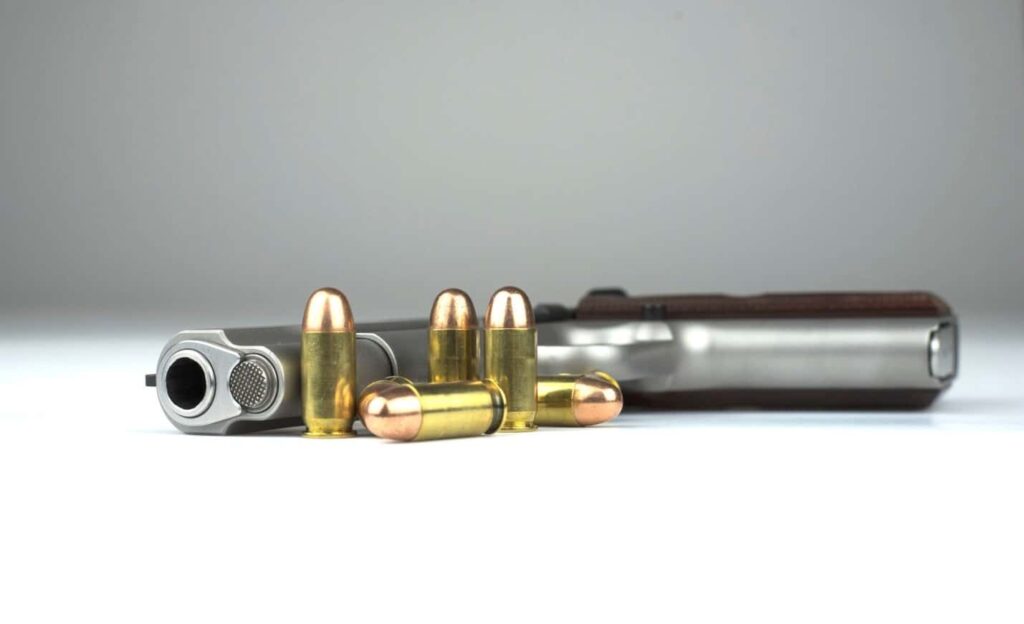Raising Self-Defense in Assault Cases
May 26, 2025

7 Different Types of Property Crimes in Colorado
Colorado One of the Strictest States on DUI and Driving Offenses
Posted by: Jacob E. Martinez
Category: Gun Crimes | Weapons Crimes
Microphones are being used to put a stop to gun crime.
Sounds like something out of science fiction, right? Or a ridiculous Saturday Night Live skit? But police in Denver allege that this powerful new technology, called the ShotSpotter, has helped them to catch two-thirds more gun crime after one year in use.
Not surprisingly, the Denver police department recently made the decision to renew and expand the Shotspotter program. The Bureau of Alcohol, Tobacco, and Firearms provided funding for the first year, although the DPD is looking to alternative sources for funds in 2016.
How does it work? ShotSpotters are high-powered microphones that police have positioned over high crime areas. Beginning in January, police installed the experimental devices at undisclosed locations around the city.
The technology allows officers to respond to the exact location of a shooting. The microphone’s sensors are calibrated to pick up the sound of gunfire and alert nearby officers. Police claim that ShotSpotter has an average response time of 38 seconds after the first shot.
The ShotSpotter isn’t just capable of notifying the police when a shot has been fired—it also knows where it happened as well. The device can pinpoint the approximate location of the shooter with its high-tech sound sensors. The DPD alleges it is accurate within 82 feet.
“The officers are getting it the same moment as the dispatchers are getting it,” Denver Police Captain Steven Carter told CBS Denver. “They’re getting an audible and visual alert in their car and they get a little map that pops up that says this is where the shooter is standing. They’ll get and they can be responding long before the dispatcher sends them.”
Denver Police officers claim to have received 337 ShotSpotter alerts since they began using the technology. That averages to about 40 notifications per month. Out of all the incidents, 26 resulted in someone being arrested at the scene.
“Quite frankly, it doesn’t sound like a lot,” Carter said, “but those are arrests of those we either caught at the scene or people who we were able to identify and quickly arrest near the scene. What that doesn’t count is all the evidence that we gather that leads to the arrest and the filing of charges on everybody else from what we were able to do with our investigation and later on charge them.”
Carter went on to say most cases of ShotSpotter alerts weren’t attached to a 911 calls or citizen complaints.
“In two-thirds of alerts we get from ShotSpotter no citizens called us,” Carter said. “So what that tells us is we would’ve missed 66 percent of the gunfire incidents in that area were it not for ShotSpotter.”
Carter also addressed concerns that the audio technology could be used to monitor conversations or otherwise be a form of public surveillance. The ShotSpotter is designed to detect the sonic profile of gunfire, according to Carter, and does not function as a listening or recording device.
The DPD has not placed the ShotSpotter devices all over the city. Instead, they claim the placement is data driven, focusing on areas with higher levels of gun crime.
News of the department’s decision to renew arrived in the midst of our nation’s heated gun control debate. This new technology, combined with the current political climate, could mean those accused of gun crime will face harsher penalties. Prosecutors may be eager to make an example of those arrested for political reasons.
Currently, the state of Colorado considers a wide variety of gun-related activities illegal. Residents who fail to follow the strict guidelines of our state could find themselves facing criminal charges. State law regulates who can carry a firearm, and how and when they can use their weapon.
Misuse of guns is taken seriously by our criminal justice system. For example, recklessly discharging a firearm or pointing it at someone can be considered criminal. Possessing a gun while under the influence is also a crime. These forms of misuse are prosecuted as Class 2 misdemeanors.
There are also laws regulating the transfer of guns. Knowingly purchasing or obtaining a gun in an illegal way is a Class 4 felony. People seeking to sell or buy weapons need to follow the laws closely, which includes ensuring their permits are complete and up to date. To learn more about gun owner and permit laws, click here.
Gun sellers also face significant charges for illegal transfers. Private transactions are allowed, but the seller is usually required to perform an extensive background check, in addition to obtaining approval from the Colorado State Bureau of Investigations.
If you’ve been arrested on weapon charges in Colorado, you may face incarceration and heavy fines. Contact an expert criminal defense attorney to ensure the best outcome for your situation.
About the Author:
Denver-based criminal defense and DUI attorneyJacob E. Martinezis a knowledgeable and experienced litigator with a record of success providing innovative solutions to clients facing criminal charges of any severity. Mr. Martinez has been designated a Top 100 Trial Lawyer by the National Trial Lawyers and has been awarded both the Avvo Client’s Choice Award and Avvo Top Attorney designation, evidencing his reputation for his exemplary criminal and DUI defense work and high moral standards.
Dismissed with No Charges Filed
Jefferson County Felony Theft case
Dismissed
Arapahoe County Felony Theft case
Dismissed
Boulder County Felony Theft case
Jury Trial - Not Guilty
Jury Trial - Not Guilty
Arapahoe 1st Degree Assault/Vehicular Assault
Jury Trial - Not Guilty
Denver Domestic Violence Assault Case
Jury Trial - Not Guilty
Denver D.V. Assault
Jury Trial - Not Guilty
Denver Careless Driving Resulting in Death
Jury Trial - Not Guilty
Jefferson County Felony Menacing
Jury Trial - Not Guilty
Adams County DUI
Jury Trial - Not Guilty
Jefferson County DUI
Jury Trial - Not Guilty
Jefferson County DUI
Jury Trial - Not Guilty
Jefferson Vehicular Assault/DUI
Jury Trial - Not Guilty
Jefferson County DUI
Jury Trial - Not Guilty
Boulder County DUI case
Jury Trial - Not Guilty
Arapahoe County DUI case
Jury Trial - Not Guilty
Adams County DUI case
Jury Trial - Not Guilty
Douglas County DUI case
Jury Trial - Not Guilty
Gilpin County DUI case
Dismissed
Broomfield County Probation Revocation case
Dismissal
Arapahoe County DUI case
Deferred Judgment
Arapahoe County DUI case
Deferred Judgment
Douglas County DUI case
Deferred Judgment
Larimer County DUI case
Deferred Judgment
Arapahoe County DUI Case
Deferred Judgment
Denver Felony Burglary Case
Deferred Judgment
Arapahoe County DUI case
Dismissed
Arapahoe County Protection Order Case
Dismissed
Golden Destruction of Property case
Dismissed
Jefferson CountyProtection Order case
Dismissed
Jefferson County Domestic Violence case
Dismissed and Sealed
Jefferson County DUI case
Dismissed
Denver Major Traffic Offense case
Dismissed and Sealed
Broomfield County Domestic Violence case
Dismissed
Summit County DUI Revocation
Dismissed
Denver DUI Revocation
Dismissed
Denver DUI Revocation
Dismissed
Denver DUI +.2 Involving Accident and Injury case
Dismissed
Denver DUI/Habitual Traffic Offender case
DISMISSAL
Denver District Aggravated Theft
Dismissed
Greenwood Village Assault case
Dismissal
Elbert County DUI
Dismissed
Arapahoe County Domestic Violence case
Dismissal
Jefferson County DUI
Dismissal
Denver Municipal Assault
Dismissed
Boulder County Domestic Violence Assault case
Dismissed
Wheat Ridge Assault case
Dismissed
Jefferson County DUI case, with 2+ Prior Convictions
Dismissed
Arapahoe County Domestic Violence case
Dismissed
Broomfield County Domestic Violence case
Dismissed with No Charges Filed
Jefferson County Felony Theft case
Dismissed
Arapahoe County Felony Theft case
Dismissed
Boulder County Felony Theft case
Jury Trial - Not Guilty
Jury Trial - Not Guilty
Arapahoe 1st Degree Assault/Vehicular Assault
Jury Trial - Not Guilty
Denver Domestic Violence Assault Case
Jury Trial - Not Guilty
Denver D.V. Assault
Jury Trial - Not Guilty
Denver Careless Driving Resulting in Death
Jury Trial - Not Guilty
Jefferson County Felony Menacing
Jury Trial - Not Guilty
Adams County DUI
Jury Trial - Not Guilty
Jefferson County DUI
Jury Trial - Not Guilty
Jefferson County DUI
Jury Trial - Not Guilty
Jefferson Vehicular Assault/DUI
Jury Trial - Not Guilty
Jefferson County DUI
Jury Trial - Not Guilty
Boulder County DUI case
Jury Trial - Not Guilty
Arapahoe County DUI case
Jury Trial - Not Guilty
Adams County DUI case
Jury Trial - Not Guilty
Douglas County DUI case
Jury Trial - Not Guilty
Gilpin County DUI case
Dismissed
Broomfield County Probation Revocation case
Dismissal
Arapahoe County DUI case
Deferred Judgment
Arapahoe County DUI case
Deferred Judgment
Douglas County DUI case
Deferred Judgment
Larimer County DUI case
Deferred Judgment
Arapahoe County DUI Case
Deferred Judgment
Denver Felony Burglary Case
Deferred Judgment
Arapahoe County DUI case
Dismissed
Arapahoe County Protection Order Case
Dismissed
Golden Destruction of Property case
Dismissed
Jefferson CountyProtection Order case
Dismissed
Jefferson County Domestic Violence case
Dismissed and Sealed
Jefferson County DUI case
Dismissed
Denver Major Traffic Offense case
Dismissed and Sealed
Broomfield County Domestic Violence case
Dismissed
Summit County DUI Revocation
Dismissed
Denver DUI Revocation
Dismissed
Denver DUI Revocation
Dismissed
Denver DUI +.2 Involving Accident and Injury case
Dismissed
Denver DUI/Habitual Traffic Offender case
DISMISSAL
Denver District Aggravated Theft
Dismissed
Greenwood Village Assault case
Dismissal
Elbert County DUI
Dismissed
Arapahoe County Domestic Violence case
Dismissal
Jefferson County DUI
Dismissal
Denver Municipal Assault
Dismissed
Boulder County Domestic Violence Assault case
Dismissed
Wheat Ridge Assault case
Dismissed
Jefferson County DUI case, with 2+ Prior Convictions
Dismissed
Arapahoe County Domestic Violence case
Dismissed
Broomfield County Domestic Violence case
Dismissed with No Charges Filed
Jefferson County Felony Theft case
Dismissed
Arapahoe County Felony Theft case
Dismissed
Boulder County Felony Theft case
Notifications


